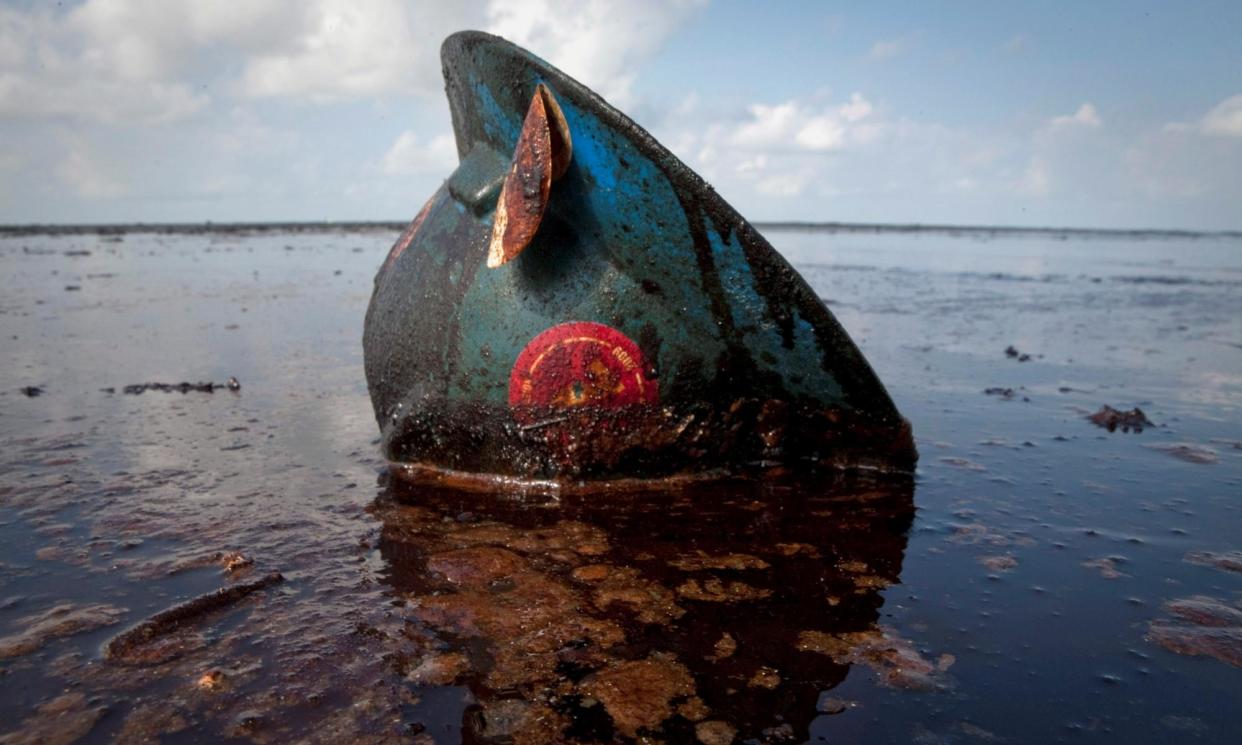Green activists push Biden to freeze ‘disastrous’ deepwater oil export rigs

- Oops!Something went wrong.Please try again later.
Joe Biden’s administration is coming under renewed pressure to escalate its curbs on the US’s booming trade in fossil fuels by halting new deepwater oil-export facilities, as well as entrenching its pause in gas-export licences.
A coalition of 20 environmental groups, sensing election-year traction with Biden as he seeks a second term as US president, has written to officials demanding a freeze on deepwater oil-export facilities, similar to the move announced by the Biden administration earlier this year when it paused new licenses for liquified natural gas (or LNG) exports.
A letter to the US Department of Transportation asks for a re-evaluation of whether the crude oil exports are in the national interest, given they cause “disastrous climate-disrupting pollution and environmental injustices and would lock in decades of fossil fuel dependence that undercut the pathway to a clean energy economy”.
This week, activists are also set to press the Biden administration to indefinitely extend its pause on new LNG export licenses, citing the industry’s huge emissions and impacts upon communities and fishers along the Gulf of Mexico coast, even though the administration has indicated the pause will end within a year.
Meanwhile, a further 200 groups have called for congressional leaders to end all funding that supports fossil fuel extraction across federal lands and waters, citing the need to rapidly phase out oil, gas and coal production to avoid disastrous climate change.
Related: Alleged ‘deal’ offer from Trump to big oil could save industry $110bn, study finds
“Congress has coddled the fossil fuel industry for decades, scarring millions of acres of public lands in the process,” said Ashley Nunes, public lands policy specialist at the Center for Biological Diversity. “It’s past time our leaders take this simple step and stop funding activities that are completely at odds with protecting our climate.”
Green groups are attempting to nudge Biden away from a conflicting dynamic in which the president has passed landmark climate legislation, and acted to slash emissions from cars, trucks and power plants, and yet has presided over an unprecedented glut in oil and gas drilling and industry profits. Last year, the US produced more oil and gas than any country has ever done in history.
A particular target is the growth of deepwater facilities in the Gulf of Mexico that export crude oil. Last month, to the fury of campaigners, the Biden administration approved a license for the Sea Port 0il terminal, a platform located 30 miles (48km) off the coast of Texas that will convey up to 2m barrels of oil each day once completed.
Three other such terminals are currently being considered, with proponents arguing they will create jobs and economic activity. The Sea Port oil terminal provides “a more environmentally friendly, safe, efficient and cost-effective way to deliver crude oil to global markets”, according to Jim Teague, co-chief executive of Enterprise, the operator of the project.
Opponents point out that no new oil project can go ahead if the world is to meet climate goals the US has signed up to. The new infrastructure, meanwhile, will further burden Gulf communities that already have to live alongside a maelstrom of air and water pollution from a growing tangle of industry terminals and pipelines.
“We think that building massive terminals to export fossil fuels, and putting them where people are already living with terribly polluted air, violates the policies that President Biden laid out in his executive orders,” said Sam Sankar, senior vice-president for programs at Earthjustice.
The push for the deepwater export facilities comes amid a new push by oil companies to access resources located several miles underwater in the Gulf’s seabed. BP, which was responsible for the catastrophic Deepwater Horizon oil spill in 2010, is reigniting its ambitions for deepwater oil drilling, insisting that safety is a major priority for the company.
Sankar, who was deputy chief counsel for a Barack Obama-era commission into the disaster, said that major concerns over the practice remain.
“Anyone on the spill commission would agree the fundamentals of the regulatory system have not changed,” he said. “Taxpayers and the ecosystems of the Gulf continue to bear the risks, and the risks remain enormous. That paradigm just hasn’t changed since then.”
Asked about a potential pause in oil exports, a spokesperson for the Department of Transportation said it “has and will continue to take action that accelerates America’s transition to a clean energy future, benefitting communities, workers and our economy”.
Erik Milito, president of the National Ocean Industries Association, said that “arbitrarily limiting the ability of the US to export energy would be incredibly damaging, not just for the US and Gulf coast, but also for our allies who depend on this stable and affordable global energy source”.
Donald Trump, who is set to face Biden in November’s presidential election, has vowed to repeal various environmental regulations around drilling, allegedly in return for campaign contributions from the oil industry. While president, Trump wound back some of the safety rules that were put in place following the Deepwater Horizon disaster.

